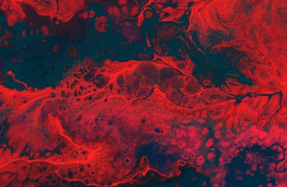The Dogs
 Maximilian zu Wied-Neuwied, Dogsled near Fort Clark, 1833.
Maximilian zu Wied-Neuwied, Dogsled near Fort Clark, 1833. The Dogs
1.
Emilio and I decided to collect the animals on the first day of the drought. “You know I’m scared of dogs,” said Emilio. He had been bitten in the face by a dog when he was a child. He still had a weirdly shaped scar on his cheek, which sometimes looked like a peace sign when the light was right.
“I know,” I said. “I’ll pick the dogs.”
Choosing dogs for the future of creation turned out to be a huge responsibility. There was no clear consensus about what kinds of dogs were most useful or most adaptable in evolutionary terms. No one even seemed to know which kinds of dogs were most likable, except for Emilio, who said that none of them were. And dogs were all so different in terms of their personalities, their resilience, their attitudes towards life. You could have made an existential flowchart of dogs. I probably would have done that if I had had any craft paper, but the house where we were staying only had stacks upon stacks of old newspapers, many of them already moldy or rotting.
My grandmother had always kept big yellow dogs that ran amok in her house and chewed up the seats of her car, dogs with the personalities of over-enthusiastic marketing experts and the body type of sumo wrestlers, in dog terms. My best friend when I was a child only ever had tiny dogs, the kind that fit in your lap, in the crook of your arm, on your chest, dogs that never outgrew being the size and shape of human babies. My first boyfriend had a dog that looked like a lone wolf, a single lop-eared dog with an unspeakably sad expression. My boyfriend thought the dog was a depressive. He ground up Zoloft in its food, or sometimes aspirin, when the dog committed apparently intentional and random acts of self-destruction.
Here’s a fact. Dogs start to resemble their owners. Even if they don’t start to look like them, they start to act like them. Everyone knows that lazy people have lazy dogs and needy people have needy dogs and scrappers have scrappy fighting dogs. Which begs the question:
You’re reading a preview, subscribe to read more.
Start your free 30 days





